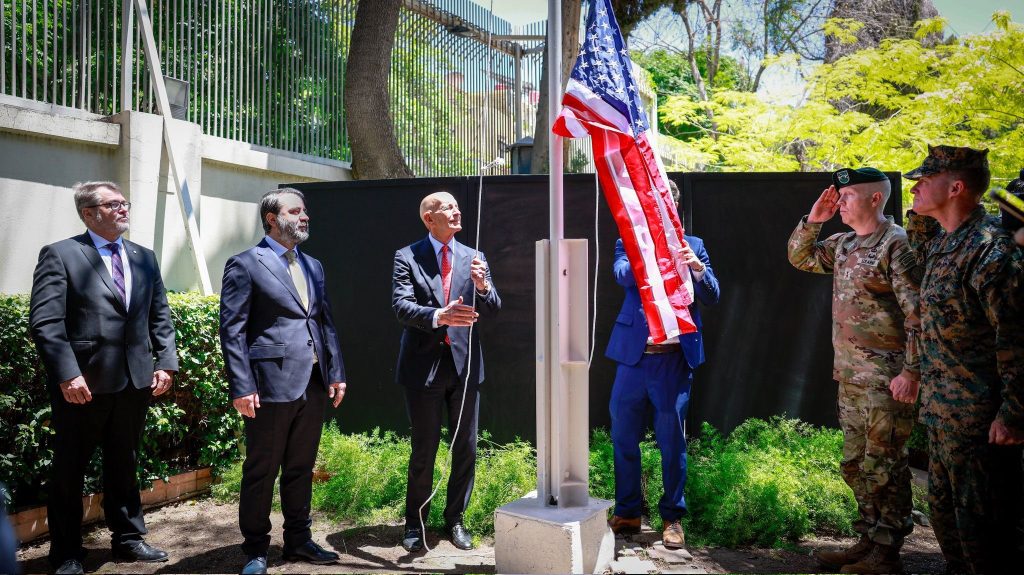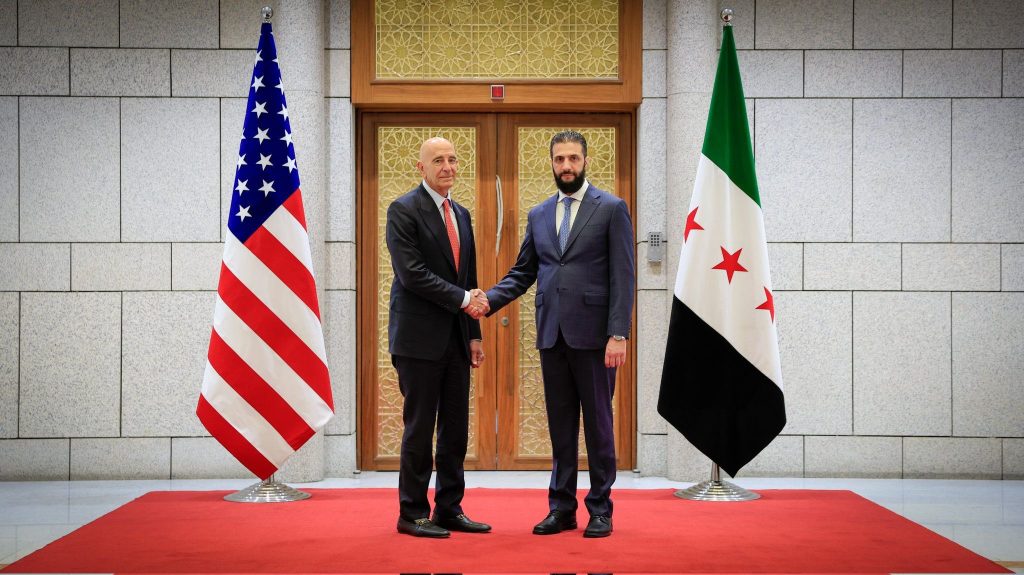The US reopened the US ambassador’s residence in Damascus on Thursday as the Trump administration is building ties with the new Syrian government led by Ahmed al-Sharaa, the former al-Qaeda leader who led the assault that ousted former President Bashar al-Assad.
“Our American flag rose proudly today over Damascus along with the rise of the hopes and aspirations of the Syrian people due to [President Trump’s] bold and courageous vision and decision on May 13th,” Tom Barrack, the US ambassador to Turkey and special envoy to Syria, wrote on X.
Barrack was referencing President Trump’s decision to lift sanctions on Syria. The State Department recently issued a waiver for crushing sanctions that were imposed under the Caesar Act, which were designed to prevent Syria’s reconstruction and had a devastating impact on civilians.

“The President lifted onerous sanctions to allow Syria to determine its own future and has empowered [Secretary Rubio] to weave a new tapestry of foreign policy in the Middle East,” Barrack added.
The US embassy in Damascus was shuttered in 2012 and remains closed. But the reopening of the ambassador’s residence is a sign that Washington may soon fully normalize relations with Damascus.
Barrack also met with Sharaa at the Presidential Palace in Damascus and said the purpose of the meeting was “to launch a new phase in our relationship based on mutual respect and mutual interests.” He was present for the signing of a $7 billion energy deal, under which a consortium of US, Qatari, and Turkish companies will work to revive Syria’s power sector.
One of the US’s main asks of the new Syrian government was that it pursue normalization with Israel. Since the regime change that ousted Assad on December 8, Israel has invaded southern Syria and has launched airstrikes across the country. But Israel has also been holding talks with Sharaa’s government, and Barrack suggested the two sides could sign a “non-aggression” agreement.
“Syria and Israel is a solvable problem. But it starts with a dialogue,” Barrack told reporters in Damascus. “I’d say we need to start with just a non-aggression agreement, talk about boundaries and borders.”

Barrack’s talks with Sharaa, formerly known as Abu Mohammed al-Jolani, marked his second meeting with the Syrian leader within a week. Earlier this month, Sharaa met with President Trump, who described the former al-Qaeda chief as “a young, attractive guy” with a “strong past.”
Barrack also said on Thursday that the US would remove Syria from the list of state sponsors of terror, saying that issue was “gone with the Assad regime being finished” even though Sharaa’s jihadist group that took power in Damascus, Hayat Tahrir al-Sham (HTS), is still considered a terrorist organization by the US government.
Sharaa got his start with al-Qaeda in Iraq, where he fought an insurgency against US troops before being imprisoned from 2006 to 2011. In 2012, he traveled to Syria and formed al-Qaeda’s affiliate in the country, the al-Nusra Front.
In 2016, Sharaa claimed the al-Nusra Front was cutting ties with al-Qaeda. At the time, he thanked the “commanders of al-Qaeda for having understood the need to break ties.”
In 2017, Julani merged his group with several other Islamist factions to form HTS, which the US State Department designated as a foreign terrorist organization in 2018.
While Sharaa now presents himself as a moderate, HTS-affiliated forces have been responsible for the massacre of thousands of Alawites and other minorities since he took power, mainly in the western coastal areas of Syria.


